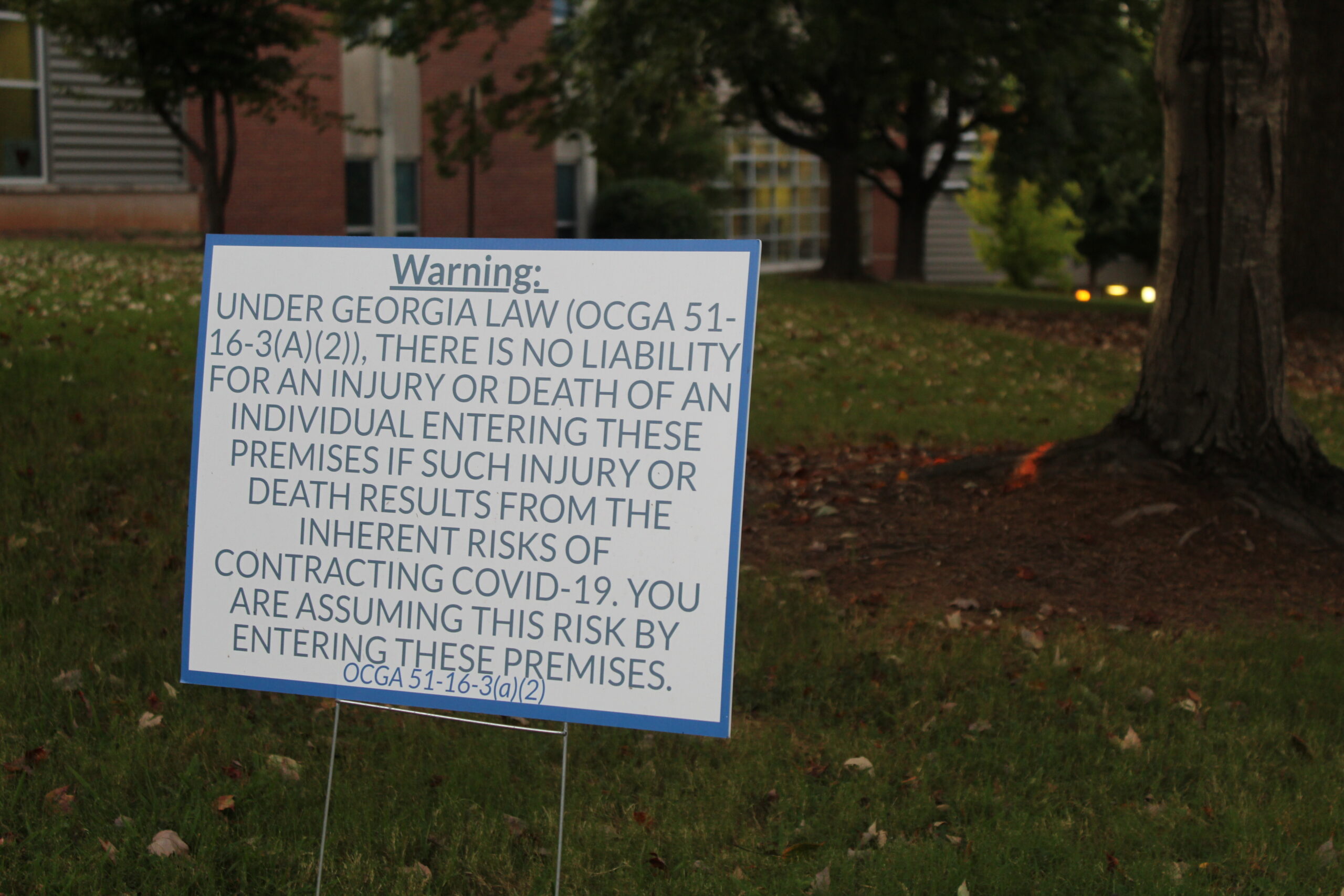Emil Moffatt
,
Lily Oppenheimer
| WABE
December 15th, 2020
One of the sticking points preventing the passage of more federal COVID-19 relief dollars is the debate over whether businesses should be shielded from liability. That is if customers or employees catch the coronavirus and can trace it back to that specific location.
However, most people with COVID-19 currently have no way of proving the source of their infection – with the exception of those infected in living situations like in nursing homes or families who were quarantined for weeks on a cruise ship.
Limited available contract tracing and testing for the coronavirus, the difficulty of recalling a comprehensive list of contacts, and the gap between infection and illness all mean more hurdles for plaintiffs, according to Georgia State University law professor Timothy Lytton.
Lytton has written extensively about business liability and believes that Senate Republicans’ fears of excessive litigation against businesses are unwarranted.
“There’s no evidence that there’s a wave of COVID liability lawsuits sweeping the country,” Lytton said.
Georgia is one of several states that has passed a COVID-19 liability protection for businesses.
“In Georgia, a patron for a business may not sue that business unless they can show what’s called gross negligence or intentional harm,” Lytton said. “So if a business owner is just careless, for example, cuts corners, crowds a bar with lots of people at happy hour, that’s not enough in Georgia to bring a lawsuit. Businesses are immune from that.
“You’d have to show that the business showed conscious disregard or intentionally subjected patrons to some sort of harm, and that’s almost an insurmountable hurdle.”
Lytton argues that as long as businesses take reasonable precautions, like putting up signs for mask mandates and providing space for social distancing, they should have nothing to worry about. Use common sense, he says. Businesses essentially need to follow the latest guidance from public health officials.
In the context of the pandemic, Lytton believes business-owners can invest in cost-effective precautions, like providing masks for employees and enforcing social distancing.
“Unfortunately, government doesn’t really have the resources to go out and enforce those mandates, even if they’re mandatory,” Lytton said.
“There’s really only one good source of deterrence for businesses that might be tempted to cut corners, and that’s the process of being sued.”
The Trump administration has offered a $916 billion coronavirus relief package after Democrats rejected Senate Republicans’ efforts to slim down the last relief bill. Other than the liability protections for businesses, that bill would have axed extra funding to several state and local governments who have been hard-hit by the pandemic.








